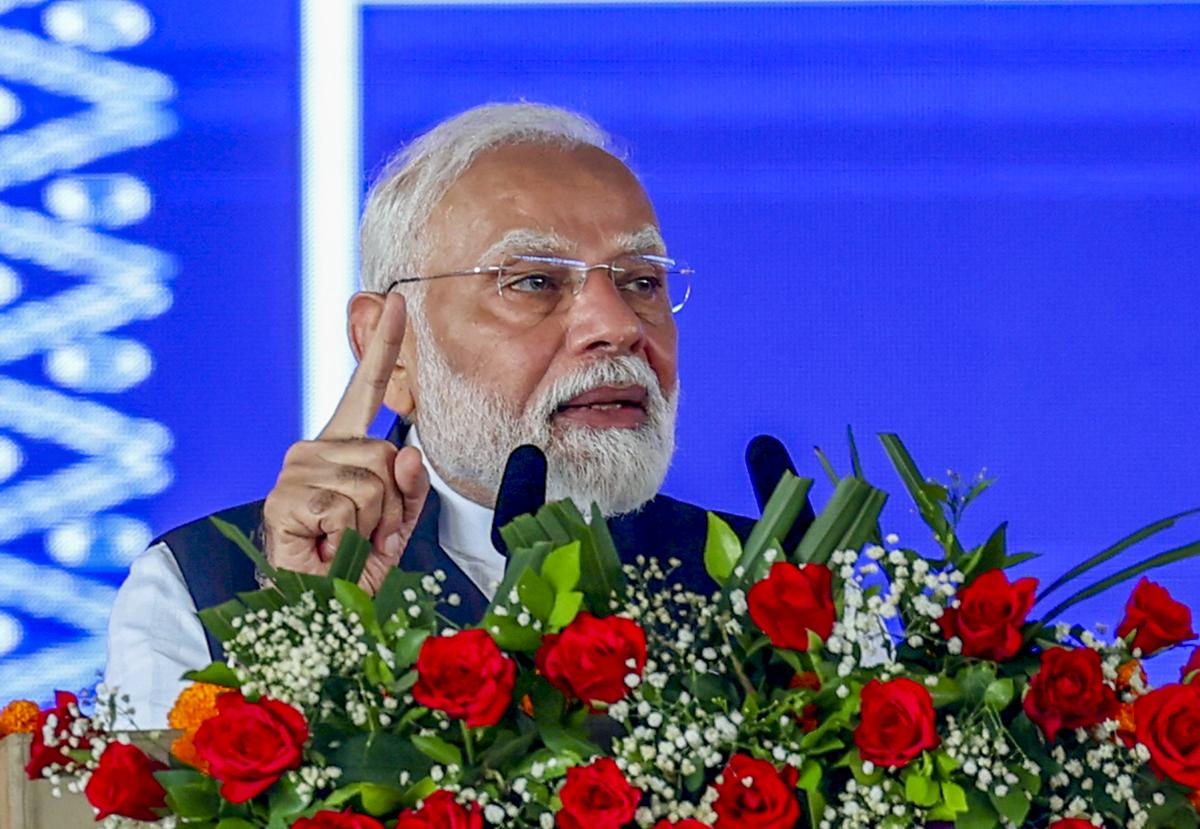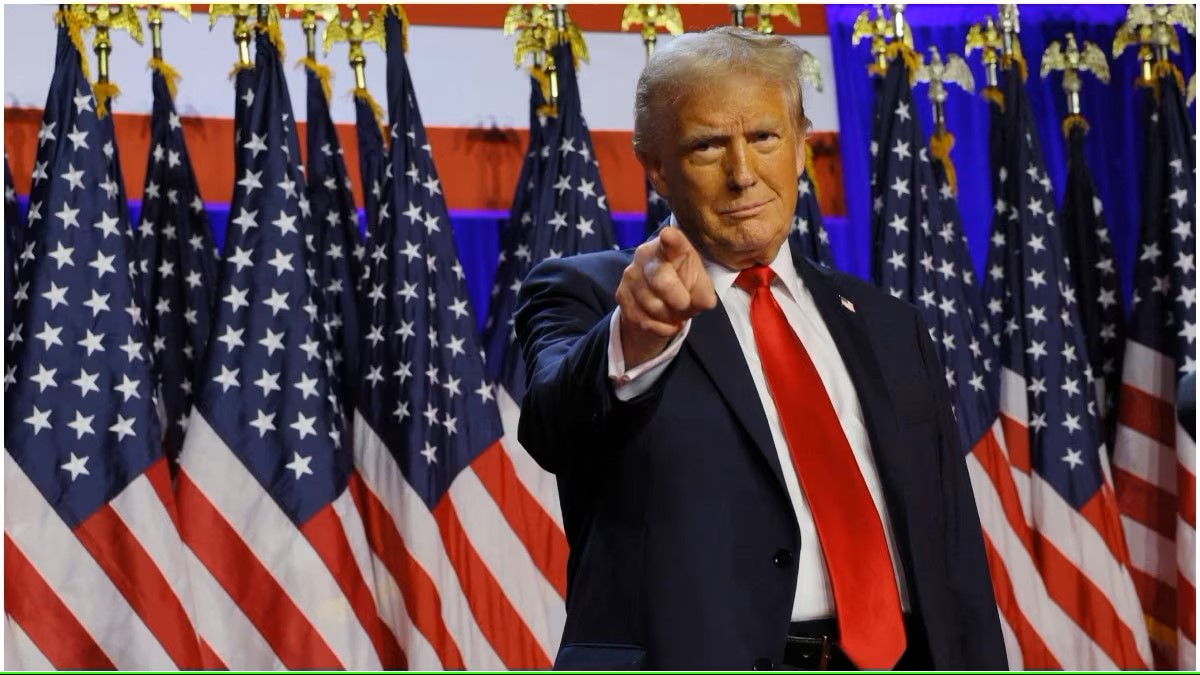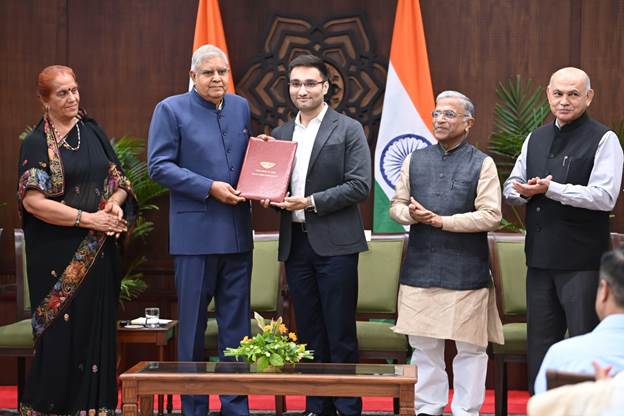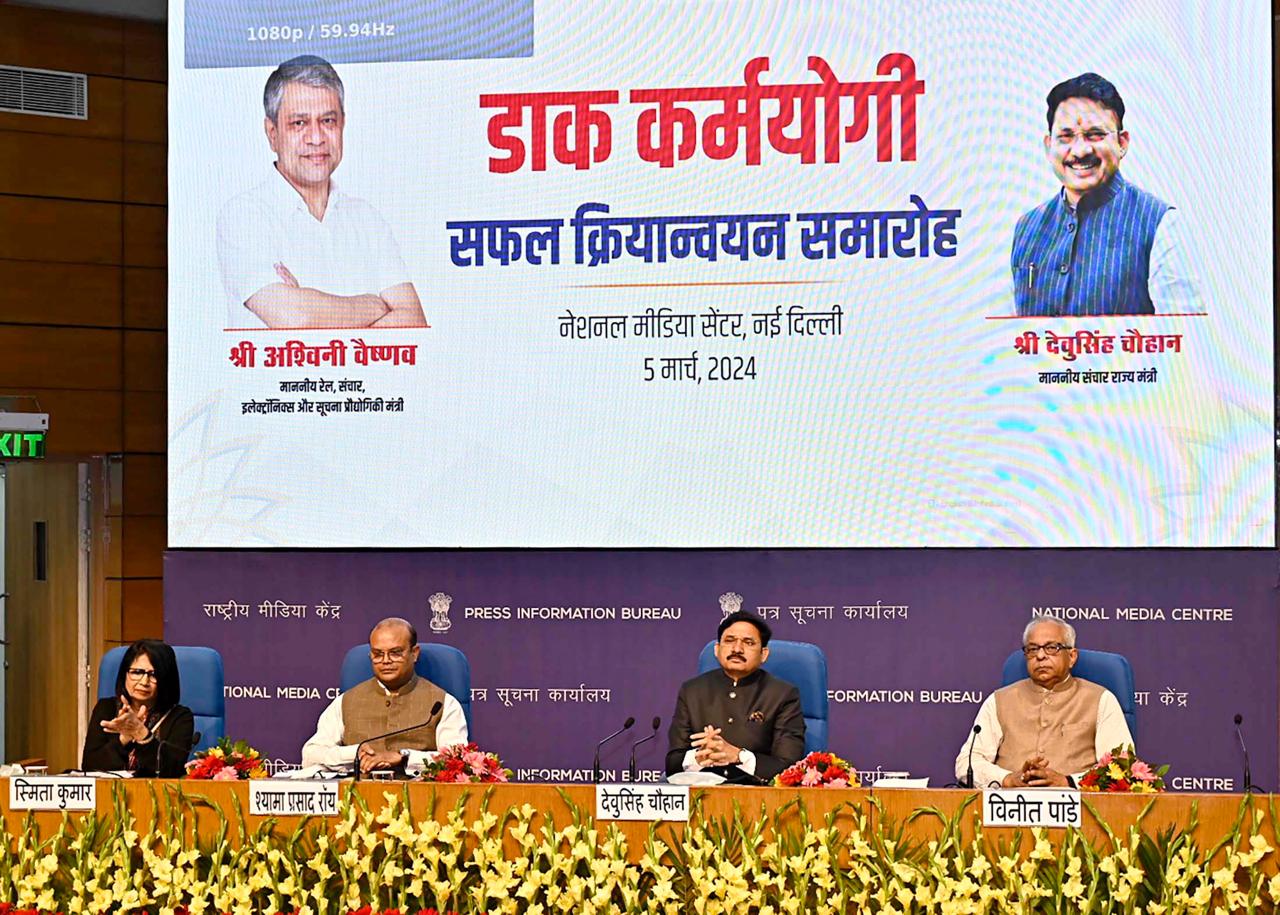In a notable address marking the conclusion of the Rajasthan High Court’s Platinum Jubilee celebrations in Jodhpur, Prime Minister Narendra Modi also inaugurated the Rajasthan High Court Museum.
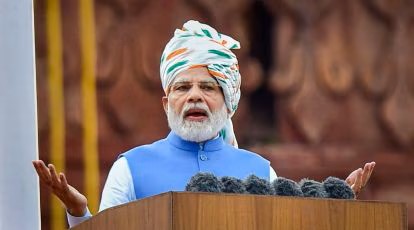 Modi began by acknowledging the delay in his arrival due to adverse weather conditions but expressed his pleasure at participating in the milestone event. He highlighted that the Rajasthan High Court’s 75th anniversary coincides with the nearing 75th year of the Indian Constitution, underscoring the significance of celebrating justice and dedication. “Today’s event reflects the nation’s commitment to the Constitution,” he remarked, extending congratulations to all those upholding justice and the people of Rajasthan.
Modi began by acknowledging the delay in his arrival due to adverse weather conditions but expressed his pleasure at participating in the milestone event. He highlighted that the Rajasthan High Court’s 75th anniversary coincides with the nearing 75th year of the Indian Constitution, underscoring the significance of celebrating justice and dedication. “Today’s event reflects the nation’s commitment to the Constitution,” he remarked, extending congratulations to all those upholding justice and the people of Rajasthan.
The Prime Minister emphasized the historical role of the Rajasthan High Court in India’s unity, recalling Sardar Vallabhbhai Patel’s efforts to consolidate various princely states into a unified nation. He noted that integrating separate high courts from regions like Jaipur, Udaipur, and Kota was a key step in establishing the Rajasthan High Court. “National unity is the cornerstone of India’s judicial system, and enhancing it will further strengthen our nation and its institutions,” Modi said.
Modi discussed the need to simplify justice processes, acknowledging that while justice should be straightforward, procedural complexities sometimes hinder accessibility. He commended India’s progress in removing outdated colonial laws and replacing them with the Bharatiya Nyaya Sanhita, which he described as a move away from colonial influences toward a justice system rooted in Indian ideals. “Our task now is to ensure the Bharatiya Nyaya Sanhita’s principles are fully realized,” he stated.
Reflecting on India’s rapid transformation, Modi noted the country’s rise to the fifth largest global economy and highlighted the high aspirations of its citizens. He stressed the importance of innovation and modernization in meeting these expectations, particularly in achieving “Justice for All.” Modi praised the technological advancements in the judicial system, such as the ‘E-Courts’ project, which has computerized over 18,000 courts and connected numerous court complexes and prisons with video conferencing facilities. He also recognized Rajasthan’s progress in adopting paperless processes and e-filing systems.
The Prime Minister reiterated the importance of alternative dispute resolution mechanisms for quick and cost-effective justice, urging continued support and development in this area. He highlighted the judiciary’s role in addressing national issues, citing the abrogation of Article 370 and the Citizenship Amendment Act (CAA) as examples of judicial engagement with national integration and justice.
Modi concluded by stressing the crucial role of integration across various systems and technologies, from transportation to data management, in modernizing India. He praised the global recognition of India’s technological achievements and called for similar advancements in the justice system. Modi emphasized the need for legal documents and judgments to be accessible in local languages, noting that the Supreme Court is already working on translating judicial documents into 18 languages.
In closing, the Prime Minister expressed confidence that the judiciary will continue to prioritize ease of justice, ensuring that it remains simple, accessible, and effective for all citizens in a developed India.
The event was attended by Rajasthan Governor Shri Haribhau Bagade, Chief Minister Shri Bhajan Lal Sharma, Union Minister for Law & Justice Shri Arjun Ram Meghwal, Supreme Court Justice Sanjeev Khanna, and Chief Justice of the Rajasthan High Court, Justice Manindra Mohan Shrivastava.

